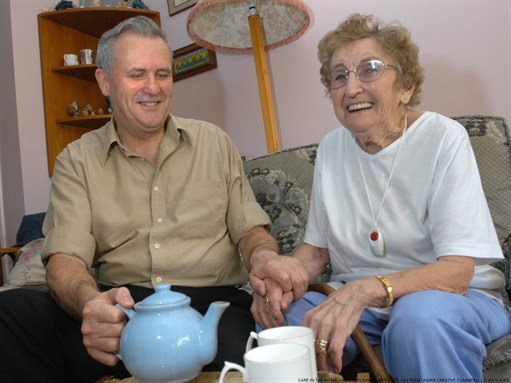The vast majority of caregivers for seniors in the U.S. aren’t nurses or trained professionals. They are the spouses, partners, family members, friends and neighbors of the older adults who need care. They are people like you. These caregivers humbly choose to care for their loved ones day in and day out, and they don’t get paid to do so. Often, they don’t get recognized as they should, either.
Today, in honor of Caregiver Appreciation Month, we’d like to share a few lesser known facts about caregivers in order to show our appreciation for the work they do.

1. 65.7 million caregivers make up 29 percent of the U.S.
There are caregivers who attend to the ill, elderly and aging next to you in line at the grocery store, sharing a backyard with you or sitting behind you at the movies. Caregivers are everywhere. You never know who may need an extra hand with their groceries or just a simple smile after a long day watching after someone else. These millions of Americans are inspirations.
2. A Gallup survey found 72 percent of caregivers care for a parent, step-parent, mother-in-law or father-in-law.
Although caregivers can also include neighbors or friends, they are usually children or close family. In many cases, this makes their jobs even more emotionally taxing.
3. 50 percent of all caregivers in the United States are fully employed, and 11 percent are employed part-time.
There are many caregivers out there who are working demanding jobs on top of their full-time job of caring for their loved one. A financial burden is often taken on when caregiving, increasing their need to stay employed.
4. Research shows that 17 percent of caregivers feel their health in general has gotten worse as a result of their caregiving responsibilities.
The sacrifice of time and energy required to care for someone else can lead to stress, weight gain and fatigue for caregivers. Focusing full-time on the wellbeing of another often leads to dismissing your own needs.
5. Caregiver services were valued at $450 billion per year in 2009.
This calculation focuses mostly on professional caregiving, and would be even more staggering if the costs of providing care for a close loved one were fully included.
6. 26 percent of caregivers have looked online for someone with similar health concerns, compared with 15 percent of non-caregivers.
Caregivers are also more likely to tap into their offline social networks when they need health information, care, or support.
If you know a caregiver, be sure to thank them for the time and energy they put into caring for their loved ones, and remind them to care for themselves, too.
If you are a caregiver yourself, thank you for the amazing work you do. Please check out our event calendar as we have support groups for caregivers every month: Events
